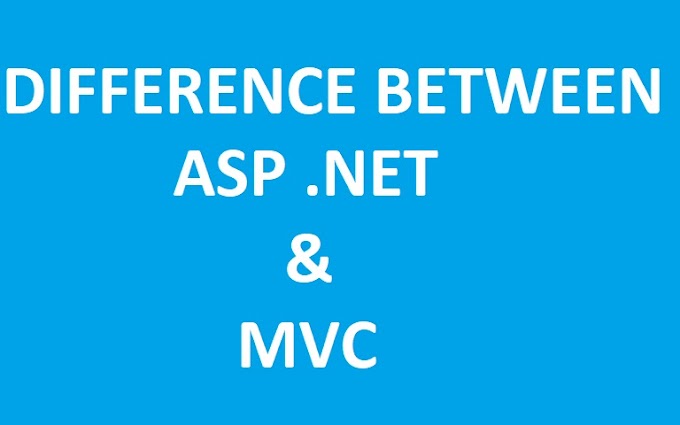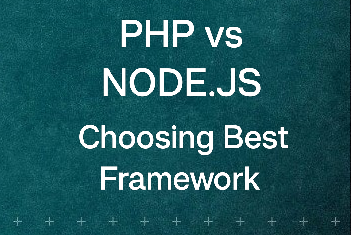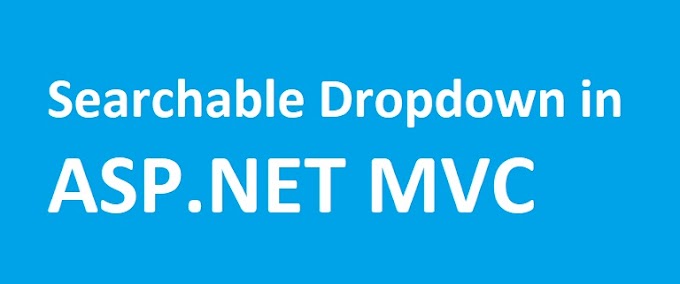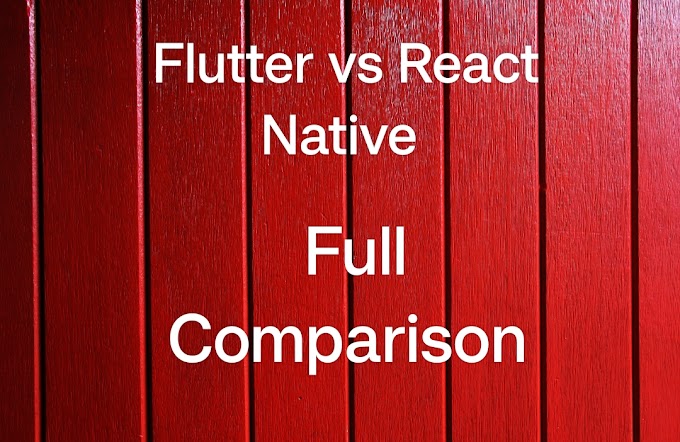I. Introduction
Imagine you're setting out to create a website, and you need the perfect tool. That's where Django and Node.js step in. Picture Django as a versatile superhero using Python, and Node.js as a quick, real-time magician using JavaScript. Now, let's figure out which one is the best fit for your project.
A. Quick Look at Django and Node.js
Django:
Meet Django – a friendly helper that loves using Python. It's great for making websites fast and organized. Developers like it because it helps them avoid repeating the same things over and over.
Node.js:
Now, say hello to Node.js – a speedy magician that uses JavaScript. It's perfect for making things happen in real-time. If you need a website to respond quickly, Node.js is your go-to.
B. Why Picking the Right One Matters
Choosing between Django and Node.js isn't just a tech decision. Selecting the appropriate tool for a task is important to making a wise choice. Your choice will affect how easy it is to build your website, how well it can grow, and even save you time and stress.
C. What We'll Explore Together
Our journey is not just a comparison – it's a guide for making smart choices. We'll look at the techie details, how easy each one is for developers to use, and where they work best. By the end, you'll know which one is like the superhero your website needs.
D. Why This Matters for You
Picking the right framework isn't just about coding. It's about saving time, having a smooth experience, and making sure your website can do all the cool things you want. Imagine it like choosing the right car for a road trip – you want one that fits your needs and gets you where you want to go.
II. Understanding Django
A. Introduction to Django
Ever heard of Django? It's not just a famous movie, but also a powerful web development framework. Django is like a handy toolkit for building websites, and the best part – it speaks Python, a language known for its simplicity. If you're looking to bring your web ideas to life, Django is a friend you want by your side.
B. Key Features and Strengths
Now, let's unpack Django's toolbox. It's all about speed and efficiency. Django follows the "Don't Repeat Yourself" rule, meaning you do less work to get more done. Features like an admin panel, URL routing, and a built-in security system make it a developer's dream. It's like having a super-smart assistant streamlining your web-building process.
C. Use Cases and Industries Where Django Excels
Where does Django shine the brightest? Think of it as a star in the world of content management systems (CMS), e-commerce platforms, and social networking sites. Big names like Instagram and Pinterest have used Django to create their platforms. It loves projects that need a solid foundation, especially those requiring a clean and organized structure.
D. Potential Drawbacks or Limitations of Django
However, no superhero is without weaknesses. Django's learning curve might be a bit steep for absolute beginners. If your project doesn't require a lot of custom features, you might find Django a bit heavyweight. But hey, every superhero has its kryptonite – it's all about finding the right fit for your mission.
III. Understanding Node.js
A. Introduction to Node.js
Ever wondered how some websites feel like magic – super fast and responsive? Meet Node.js, the wizard behind the scenes. Node.js isn't a traditional language; it's a runtime that lets developers use JavaScript to create server-side magic. If you want real-time capabilities and speedy performance, Node.js is the spell you're looking for.
B. Key Features and Strengths
Now, let's look into Node.js's magical toolkit. Its standout feature is the event-driven, non-blocking architecture. Sounds fancy, right? It means Node.js can handle many things at once without slowing down. Plus, it's perfect for creating real-time applications like chat applications or online gaming platforms. Fast and easy – that's Node.js for you!
C. Use Cases and Industries Where Node.js Excels
Node.js isn't just for show; it's a star performer in specific scenario. Think of it as the go-to wizard for building scalable network applications and real-time collaborations. Industries like e-commerce, streaming services, and online gaming adore Node.js for its ability to handle multiple requests simultaneously. Giants like Netflix and LinkedIn have harnessed Node.js for their platforms.
D. Potential Drawbacks or Limitations of Node.js
Even the most famous frameworks have their limits. One thing to keep in mind is that Node.js might not be the best fit for CPU-intensive tasks. Its single-threaded nature can sometimes struggle with heavy computations. Also, the npm (Node Package Manager) universe can be a bit overwhelming for newcomers, with a vast number of packages available.
Unlock your tech SUPER-POWERS! ✨ Start your 10-day free trial on PLURALSIGHT today and gain access to thousands of courses that will help you master in-demand skills and land your dream job. Don't just dream it, code it! Click the image below to start your free trial.
IV. Technical Comparison
When it comes to choosing between Django and Node.js, a deeper dive into the technical aspects becomes essential. Let's uncover the details and compare these frameworks on key technical parameters to guide you in making a smart decision for your project.
A. Language and Syntax Differences
Django:
Django, being Python-based, flaunts an elegant and readable syntax. Python's simplicity makes it beginner-friendly and allows developers to express concepts in fewer lines of code. If you appreciate clean and concise coding, Django's syntax might win your heart.
Node.js:
On the other side, Node.js speaks JavaScript. Its syntax is familiar to web developers, making it a seamless transition for those already are use to in the language. JavaScript's asynchronous nature also contributes to efficient handling of concurrent operations, enhancing the overall development experience.
B. Performance Metrics and Benchmarks
Django:
Django is recognized for its stability and reliability. Its performance shines in scenarios where a structured and organized approach is crucial. However, it may not match the raw speed of some frameworks optimized for specific use cases.
Node.js:
Node.js thrives in situations demanding high concurrency and low-latency responses. Its event-driven architecture enables handling multiple connections simultaneously, making it an excellent choice for real-time applications. However, its single-threaded nature might pose limitations for CPU-intensive tasks.
C. Scalability Considerations
Django:
Django's scalability is notable, especially for applications requiring a well-organized and modular structure. The framework provides tools to handle growth effectively. However, scaling might require additional considerations depending on the project's specifics.
Node.js:
Node.js is celebrated for its scalability, particularly in scenarios demanding real-time updates and interactions. Its non-blocking architecture allows it to handle a large number of simultaneous connections efficiently, making it an ideal choice for scalable applications.
V. Developer Experience
For developers, the journey with a framework goes beyond syntax and features; it's about the overall experience. Let's disect the developer experience with Django and Node.js, exploring the learning curve, available tools, and ease of integration with other technologies.
A. Learning Curve for Django and Node.js
Django:
Embarking on Django might feel like stepping into a well-guided adventure. Its clean and organized syntax, coupled with extensive documentation, makes the learning curve manageable, especially for those familiar with Python. Django's emphasis on convention over configuration streamlines the development process, offering a smoother onboarding experience.
Node.js:
Node.js, with its JavaScript roots, brings familiarity to many developers. The learning curve can be gentle, particularly for those well-versed in web development. However, the asynchronous, event-driven nature of Node.js might pose a slight challenge for beginners. Once mastered, it opens the door to building scalable and high-performance applications.
B. Developer Tools and Resources
Django:
Django's arsenal of developer tools is a testament to its commitment to efficiency. The Django Admin interface simplifies backend management, and the Django REST framework streamlines API development. The community-driven packages and extensions contribute to a rich ecosystem, providing developers with a wealth of resources to enhance their workflow.
Node.js:
Node.js, powered by npm (Node Package Manager), presents developers with a vast library of tools and modules. The Node.js ecosystem empowers developers to find solutions for a wide array of functionalities. The lightweight and modular nature of Node.js allows developers to choose tools tailored to their project needs.
C. Ease of Integration with Other Technologies
Django:
Django's versatility shines when it comes to integration. It seamlessly connects with various databases, third-party APIs, and front-end frameworks. Whether you're working with PostgreSQL, MySQL, or integrating with React on the front end, Django offers well-documented and supported integration options.
Node.js:
Node.js excels in scenarios requiring real-time interactions and asynchronous operations. Its event-driven architecture aligns well with technologies like WebSocket for real-time communication. Node.js is also a popular choice for building microservices, thanks to its modular design and support for containerization technologies like Docker.
VI. Project Suitability
When it comes to building web projects, the choice between Django and Node.js is not a one-size-fits-all decision. Let's explore the types of projects best suited for each framework and dig into the factors that should influence your choice based on specific project requirements.
A. Types of Projects Best Suited for Django
Django's Playground:
Django thrives in projects that demand a structured and organized approach. It is exceptionally well-suited for content management systems (CMS), e-commerce platforms, and projects where a clean and modular structure is crucial. If your project involves handling a substantial amount of data or relies on a relational database, Django's object-relational mapping (ORM) capabilities make it an excellent choice.
B. Types of Projects Best Suited for Node.js
Node.js in Action:
Node.js, with its event-driven architecture, excels in projects that require real-time interactions and high concurrency. It's a go-to framework for applications such as chat applications, online gaming platforms, and streaming services. Projects demanding scalable and responsive solutions, particularly those where asynchronous operations are critical, find a natural fit in Node.js.
C. Factors Influencing Framework Choice Based on Project Requirements
Choosing Wisely:
Several factors come into play when deciding between Django and Node.js for a project. Consider the nature of your project – is it content-heavy, requiring a structured backend (Django), or does it involve real-time interactions and scalability (Node.js)? Evaluate the skill set of your development team – are they more comfortable with Python (Django) or JavaScript (Node.js)? Project timelines, scalability requirements, and the need for specific features all play crucial roles in determining the most suitable framework.
VII. Decision-Making Criteria
As we navigate the landscape of choosing between Django and Node.js, let's dig into the key decision-making criteria. These factors will serve as your compass, guiding you toward the framework that aligns perfectly with your project's needs.
A. Scalability Needs
Scalability with Django:
Django, with its modular and organized structure, is well-suited for projects that require horizontal scaling. If your project anticipates growth in terms of users, data, or features, Django provides the tools to scale effectively. Its ORM system and support for caching mechanisms contribute to a scalable architecture.
Scalability with Node.js:
Node.js, known for its event-driven architecture, shines in scenarios demanding vertical scaling. Its ability to handle a large number of concurrent connections makes it an excellent choice for real-time applications and situations where scalability is crucial. The asynchronous nature of Node.js allows for efficient utilization of resources, contributing to seamless scalability.
B. Development Speed and Ease
Development with Django:
Django's emphasis on the "Don't Repeat Yourself" (DRY) principle streamlines development. The built-in admin interface, comprehensive documentation, and a ample of packages available in the Django ecosystem contribute to a faster development process. Developers often find themselves writing less code to achieve more functionality.
Development with Node.js:
Node.js, with its JavaScript roots, provides familiarity and agility to developers. The npm (Node Package Manager) repository offers a vast collection of modules, enhancing development speed. Its lightweight and non-blocking nature contribute to quick iterations, particularly in scenarios where real-time updates are a priority.
C. Community and Support
Community with Django:
Django has a strong and vibrant community. Its longevity in the web development scene has fostered an active support system. Developers can tap into a wealth of forums, tutorials, and third-party packages, ensuring that help is readily available.
Community with Node.js:
Node.js also enjoys a robust community. With a large and engaged user base, developers can find support, share knowledge, and explore the ever-expanding world of Node.js. The npm ecosystem further solidifies the community's role in enhancing Node.js development.
D. Specific Project Requirements and Constraints
Tailoring to Specifics:
The ultimate decision often boils down to the specific requirements and constraints of your project. Consider factors such as the nature of your application, the skill set of your development team, and any unique functionalities your project demands. Whether it's a content-heavy platform, a real-time application, or a mix of both, aligning the framework with your project's specifics is crucial.
VIII. Real-world Use Cases
As we draw closer to unraveling the details of Django and Node.js, let's step into the real world. Explore case studies and examples of successful projects where these frameworks have made a significant impact.
A. Case Studies or Examples of Successful Projects Using Django
1. Instagram:
- Nature of Project: Django serves as the backbone for one of the most popular social media platforms globally.
- Why Django? Instagram's content-heavy nature and the need for a scalable and well-organized system aligned perfectly with Django's strengths.
2. Pinterest:
- Nature of Project: Pinterest, a visual discovery and bookmarking platform, relies on Django for its core functionality.
- Why Django? Django's ability to handle a vast amount of data and provide an organized structure made it an ideal choice for a platform centered around visual content.
3. The Washington Post:
- Nature of Project: A prominent news organization, The Washington Post, utilizes Django for its content management system.
- Why Django? Django's flexibility and support for rapid development played a crucial role in managing and delivering news content efficiently.
B. Case Studies or Examples of Successful Projects Using Node.js
1. Netflix:
- Nature of Project: Node.js powers Netflix's server-side operations, contributing to the platform's seamless streaming experience.
- Why Node.js? Node.js's ability to handle multiple connections simultaneously and deliver real-time updates aligns perfectly with Netflix's streaming requirements.
2. LinkedIn:
- Nature of Project: LinkedIn, a professional networking platform, utilizes Node.js for its messaging feature.
- Why Node.js? Node.js's event-driven architecture suits the real-time nature of messaging, providing a responsive and scalable solution.
3. Uber:
- Nature of Project: Node.js is employed in various parts of Uber's technology stack, contributing to the efficiency of real-time operations.
- Why Node.js? Node.js's ability to handle a large number of concurrent connections aligns with the dynamic and real-time requirements of the ride-sharing platform.
Unlock your tech SUPER-POWERS! ✨ Start your 10-day free trial on PLURALSIGHT today and gain access to thousands of courses that will help you master in-demand skills and land your dream job. Don't just dream it, code it! Click the image below to start your free trial.
IX. Conclusion
In the realm of web development, the choice between Django and Node.js is not a decision to be taken lightly. Both frameworks bring unique strengths to the table, and understanding their differences is key to making a smart choice for your project.
Django, with its Pythonic elegance, is a powerhouse for projects that demand structure and organization. Its ability to handle content-heavy platforms and provide a scalable foundation has made it the backbone of notable platforms like Instagram and Pinterest.
Node.js, on the other hand, is the wizard of real-time applications. Its event-driven architecture makes it a go-to for projects requiring high concurrency, exemplified by its role in platforms like Netflix and Uber.
As you navigate this decision-making journey, consider your project's specific needs. If scalability and a well-organized structure are paramount, Django could be your ally. If real-time interactions and high concurrency are at the forefront, Node.js might be the magic wand you're seeking.
Consider factors like the learning curve, development speed, community support, and, most importantly, your project's unique requirements. Whether it's a content-centric website, a real-time messaging platform, or something in between, aligning the framework with your project's specifics is the key to success.
In conclusion, both Django and Node.js have proven their mettle in the digital landscape, contributing to the success of diverse and impactful projects. Your choice should reflect the nature of your project and the comfort level of your development team.
As you embark on your web development journey, armed with the insights from this analysis, may your choice between Django and Node.js be one that propels your project to new heights. Happy coding!













